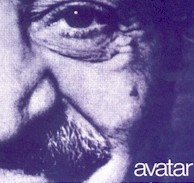
- Format: MP3

The limited-edition four-CD box set Avatar was released in an edition of 2000 copies via Pete Townshend's Eel Pie Studios and quickly sold through its run. Some of the material has been reissued in a double CD. It contains the three collaborative devotional projects he recorded between 1970 and 1976 that were dedicated to his Indian spiritual teacher Meher Baba who had passed away in 1969. The first of these albums, Happy Birthday, was issued before Who Came First. The other three CDs in the package include two subsequent albums, I Am and With Love, 1972 and 1974 respectively, and the final disc in the set, O Parvardigar, is an eight-minute film with footage from the life and teachings of Meher Baba — an Indian guru who, in 1925, decided that everything had already been said, and took a vow of silence until his death in 1969. He taught his many students in India, Asia, Europe, and America by example and through hand gestures and his writings. There are also two booklets, one, Still Bites, with an essay by Townshend on the history of the projects and who was involved with them. It includes many photographs of Baba as well. The other contains numerous artworks inspired by his teachings by one of the world's most well-known illustrators, Mike McInnerney; they are juxtaposed with excerpts from Baba's Discourses. In addition there are six postcards done by some of the world's best-known artists including Helen Mills. Little would be compelling in this set were it not for the legend and myth surrounding the music it contains. Bootleg copies of some of these recordings have sold for hundreds of dollars over the last 25 years or so, and few except for the most ardent Who fans have ever heard them. One doesn't need to look deeply into the Who's catalogue to see Baba's influence on Townshend, who first encountered the man's teachings in late 1964. The rock opera Tommy was completely inspired by Baba, whom Townshend declared as his avatar (an Indian term for a deity) on the back of the album, and Quadrophenia, while a rambling auto-documentary in song, contained many of Baba's principal themes — Townshend's own theme in the work, "Love, Reign O'er Me," being the most prominent. Other songs such as "Baba O'Reilly" — the original instrumental track is included on I Am. This is a minimal list and Who enthusiasts can find them at nearly every turn in the band's career, even as late as It's Hard, the band's final studio album, or Rough Mix, the collaboration with the late Ronnie Lane, another Baba disciple who is included on these recordings.
The first of the three Avatar recordings, Happy Birthday, was completed a year after Baba's death. It includes three Townshend originals — "Day of Silence," "The Seeker," and "The Lover Man." In addition Townshend collaborated musically on virtually everything else here, be it spoken word poetry for which he provided the musical accompaniment or songs. One of the most notable things on the album is the track "Evolution," written and performed by Ronnie Lane. Similar to the gorgeous "Debris," he sang on the Faces a Nod Is As Good As a Wink to a Blind Horse album; it is the most beautiful and moving thing here. Also included is a track by Ron Geesin entitled "With a Smile up His Nose They Entered." The mixture of music and poetry may be off-putting to some, but is nonetheless engaging as "devotional" music because of its odd and rambling assemblage. For I Am, the contributing lineup included performances from songwriter Billy Nichols and Elton John's ace guitarist Caleb Quaye as well as Lane and Townshend and a bit of help from Faces keyboardist Ian McLagan, and David Hastow. There is more music on this volume, only one poem that opens the disc, but Townshend's direct involvement is less obvious. Nonetheless, with his nine-plus instrumental "Baba O' Reilly," and his devotional song "Parvardigar," it's all that necessary. The set's final musical volume expanded the musical reach of the devotional setting exponentially, with contributions not only from Townshend with three excellent tracks, "His Hands," "Sleeping Dog," and "Lantern Cabin," but Ronnie Lane's amazing "Just for a Moment," with Ronnie Wood and Bruce Rowland assisting, and Billy Nichols and Peter Hope-Evans as well as a Q'awali group hailing Baba a full ten years before Nusrat Fateh Ali Khan made his appearance in the West anywhere other than France. Of the three albums it may be the strongest musically, but that's arguable. It is true that the box itself is long out of print, and the fourth disc, the film O Parvardigar, isn't likely to be issued in this form again — the footage is being compiled with a biography and more documentary clips for what Townshend hopes will become a full-length feature at some point. However, the music from all three discs is available from Townshend's web site only in a double-CD set called Jai Baba. For those interested in Townshend's work, past and present, this is essential. For those curious about Meher Baba, there is a bit to be learned here about the effect he's had on certain people's lives; for those looking for spirited if sometimes overly sentimental devotional music, it's all here. This is an indispensable item in Townshend's catalogue as it reveals him at his most unguarded, open, and creatively playful and unburdened by his own stature as the "spokesman for his generation."